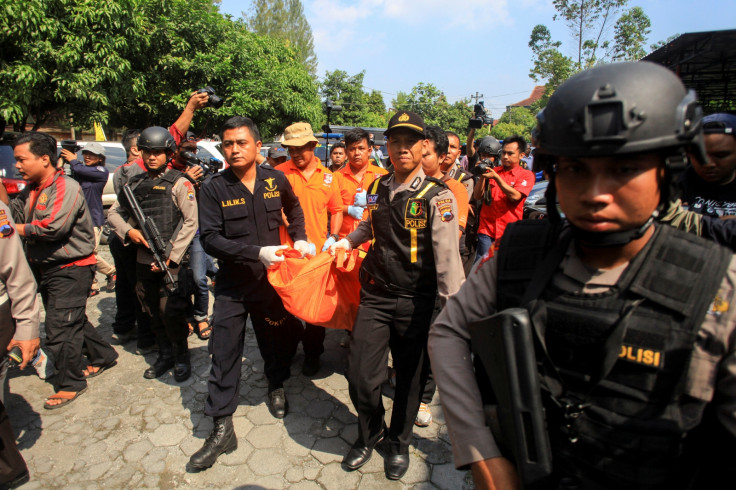Islamic State suspected after suicide bomber targets Indonesian police station
Attacker detonated his suicide vest while driving into a police compound on a motorbike.

Indonesia's most senior intelligence official has said he believes the Islamic State (Isis) was behind a suicide bomb attack on a police station in the south of the country, which injured one.
Speaking on the Indonesian channel MetroTV, the country's intelligence chief Sutiyoso said he believed the suicide attacker, who carried out his assault in the extremist hot-bead of Solo, supported Isis.
Reuters reported that the attacker detonated his suicide vest while driving into a police compound on a motorbike. The one member of the security services injured in the blast was hurt when he tried to stop the bike.
Indonesian President Joko Widodo has urged for calm in the wake of the attack, charging police with quickly tracking down individuals involved in the bombing.
Police spokesman Agus Rianto has said police would be increasing their efforts to respond to the terror threat. "We are increasing the number of personnel, as well as intensifying patrols and security in places where there are a lot of people gathering," he was quoted as saying.
In January 2016, at least seven people – including five attackers – were killed in gun and bomb attacks in Jakarta in multiple bomb blasts around Thamrin Street, a shopping and business area near the United Nations offices in the city.
At the time, Isis was blamed for the attack as analysts and officials warned the militant group was looking to create a "far caliphate" in South East Asia, building on groups that had previously aligned themselves with al-Qaeda.
The extreme Islamist group Jemaah Islamiyah, affiliated with al-Qaeda, has been waging a separatist war for decades across Indonesia, the world's most populous Islamic nation. Its leader, radical cleric Abu Bakar Bashir, is an avowed preacher against all forms of secularism.
The Islamist group stretches across Thailand, Singapore, Malaysia and the Philippines. It is linked to scores of atrocities across the region such as the Bali bombing, which killed 202 people in 2002 including 88 Australian nationals. In 2004 the group killed nine and wounded 150 in an attack on the Australian Embassy in Jakarta.
Between 200 and 300 Indonesian kihadis are believed to have travelled to the Middle East to fight alongside Islamist brigades in the Levant, raising fears they might return to carry out attacks at home.
© Copyright IBTimes 2025. All rights reserved.






















